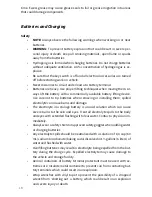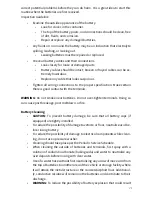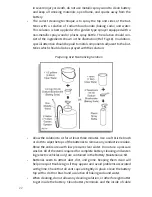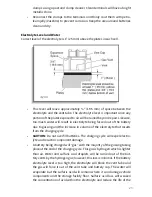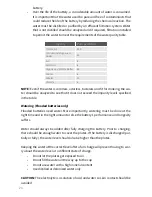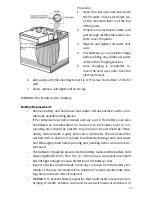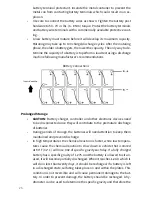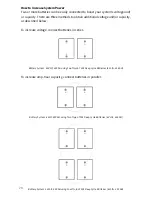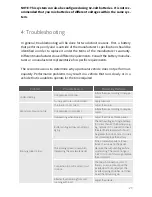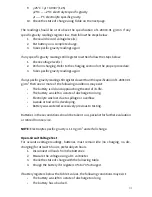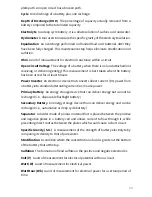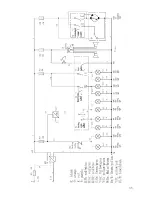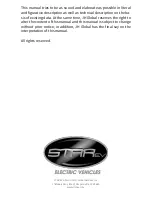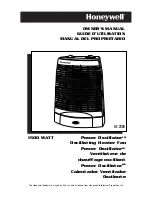
31
9.
ρ
25
°
C =
ρ
t +0.0007 (t-25)
ρ
25
°
C ——25
°
C electrolyte specific gravity
ρ
t ——t
°
C electrolyte specific gravity.
10. Check the state of charge using Table on the next page.
The readings should be at or above the specification of 1.280±0.01 g/cm3. If any
specific gravity readings register low, then follow the steps below:
1. Check and record voltage level(s).
2. Put battery on a complete charge.
3. Take specific gravity readings again.
If any specific gravity readings still register low then follow the steps below:
1. Check voltage level(s).
2. Perform charging. Refer to the charging section for the proper procedure.
3. Take specific gravity readings again.
If any specific gravity reading still registers lower than the specification of 1.280±0.01
g/cm³ then one or more of the following conditions may exist:
•
The battery is old and approaching the end of its life.
•
The battery was left in a state of discharge too long.
•
Electrolyte was lost due to spillage or overflow.
•
A weak or bad cell is developing.
•
Battery was watered excessively previous to testing.
Batteries in these conditions should be taken to a specialist for further evaluation
or retired from service.
NOTE:
Electrolyte specific gravity is 1.10 g/cm³ under full charge.
Open-Circuit Voltage Test
For accurate voltage readings, batteries must remain idle (no charging, no dis-
charging) for at least 6 hours, preferably 24 hours.
1. Disconnect all loads from the batteries.
2. Measure the voltage using a DC voltmeter.
3. Check the state of charge with the following table.
4. Charge the battery if it registers 0% to 70% charged.
If battery registers below the Table 1 values, the following conditions may exist:
•
The battery was left in a state of discharge too long.
•
The battery has a bad cell.
Summary of Contents for BN72-08-AC-Autodrive-M
Page 34: ...34 6 Electrical Diagrams...
Page 35: ...35...


